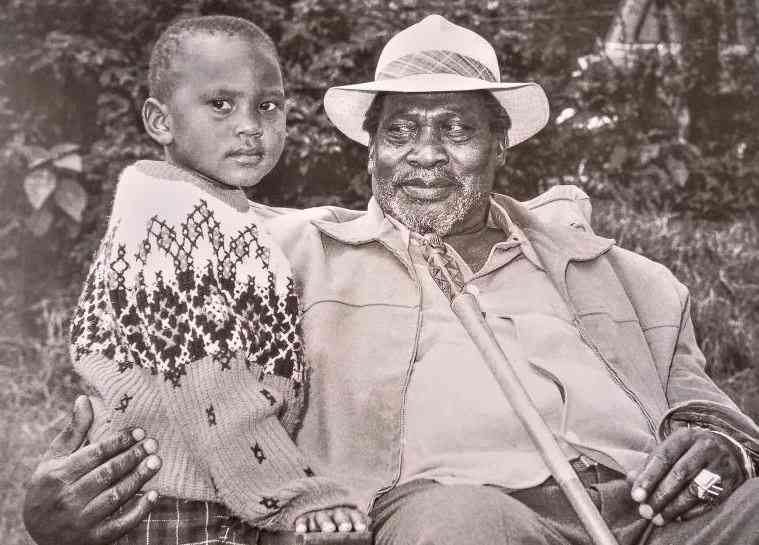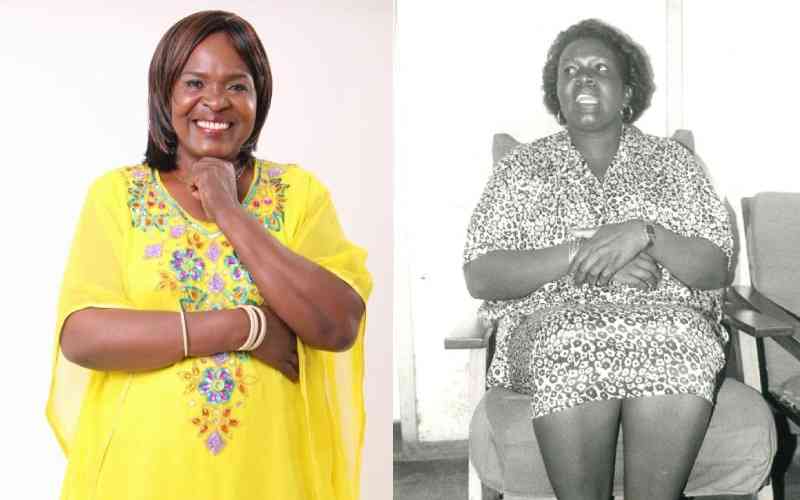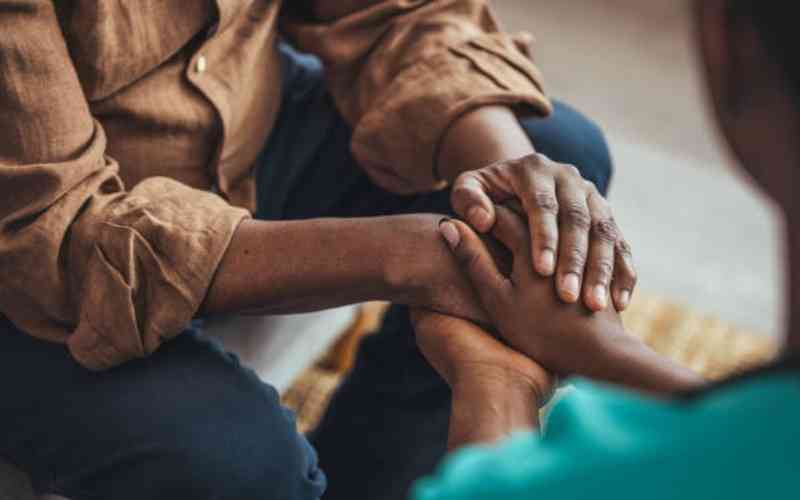
There is a trending clash between modern law and culture in Western Kenya. In the region that is dominated by the Luhya community, residents have a strange way of meting their own justice on murder suspects. They kill the killers and burn their houses to sooth the spirits of the victims.
In the Luhya culture, when a murder occurs, it is believed that the spirit of the deceased may seek revenge or linger in the world of the living. To cleanse the community, the traditional practice is to burn the houses of the suspected murderers or even kill them for the heinous act. This act is meant to drive away the spirit of the victim and restore peace to the community.
Cases of angry residents torching houses belonging to murder suspects have been on the rise, with some villagers performing the rituals and finding themselves behind bars to answer to arson and destruction of property charges.
Two weeks ago, in the sleepy village of Rurare B in Webuye West Bungoma County, Sitini Wanjala,70, was killed in by villagers for allegedly murdering an eight-year-old son of his lover, Linda Nasimiyu,28. His home was, however, spared.
In neighbouring Kakamega County’s Emayala village in Mumias East Constituency, eight houses belonging to one of the locals were burnt to ashes in a retaliatory attack. The owner of the houses was suspected of killing one Mohammed Anyanga.
Anyanga died a month ago after chaos erupted during the burial of his brother Joseph Otipa, a polygamous man.
As the elder brother to the deceased, Anyanga was to show the church where to dig the grave as per Luhya traditions. He was, however, fatally attacked by an armed gang allegedly hired by the second and third wives of the deceased Otipa.
Interestingly for revenge on Otipa’s death, Kakamega Police County Commander Lucy Kananu revealed that the deceased’s family visited her office and informed her of their intentions to arrest the suspect and burn his houses to ashes.
Two months ago, Kizito Namanga,43, was murdered outside his house at Bwichina village, Shinyalu Sub-County, by hooded men.
It is said that he was embroiled in a land dispute with his nephew, Pastor Benson Mackenzie of World Green Yellow Cross Church.
Mackenzie, now behind bars, is a suspect in the gruesome murder, and his house was torched by villagers in line with Luhya customs.
Ten villagers suspected to have participated in the age-long Luhya cultural rite that prescribes burning houses belonging to a murder suspect are behind bars to answer to arson and destruction of property charges.
In their pursuit of tradition, it did not occur to them that laws that protect property exist. The rationale behind the torching of houses among the Luhya is to exorcise the spirit of murder from their midst in what is traditionally known as okhusola.
Villagers believed that Mackenzie had a hand in Kizito’s death because of the bad blood between them. Besides burning Mackenzie’s house, they also razed his church. The villagers also burned the house of Kizito’s elder brother, ostensibly because he took sides with Mackenzie in the dispute.
The residents and security officials are reading from different scripts over the long-aged arson culture against the modern law that prohibits the act.
Elders from Kakamega and Bungoma counties told the Nairobian that the modern law cannot outshine the tradition and torching houses, chasing away the murder suspect and even killing them is the only thing that can cleanse the community from further calamity.
In the story of the late Sitini Wanjala, the 28-year-old year Nasimiyu welcomed him to her home following the death of her husband and for her, she saw Wanjala as a responsible man who would help her to take care of her children and fulfill her conjugal needs. Barely a year into their romance, tragedy struck unexpectedly one evening at Nasimiyu’s home when her lover strangled her son, cut his body into small pieces and threw them into a pit latrine.
According to the Bharefu clan traditions, when such death happens, elders assemble and perform traditional rituals.
Jack Kawa, the chairperson of the clan and area Member of the County Assembly (MCA) says that a sheep has to be slaughtered and its intestine put on a basin then every family member, close relatives and those who retrieved the body wash their hands on the intestines.
Kawa said the traditional process of managing such a disaster commences immediately and concludes a day after the burial of the deceased.
“In line with the traditions, since our child’s death was forced, we will have to slaughter a sheep and anyone who interacted with our son will wash his hands in the intestines of the sheep. From there we marched to the home of the murder suspect for a revenge,” said Kawa.
He adds that, as a clan, the nature of death is not usually simple and they must ensure that they do the cleansing process so that the deceased doesn’t appear as a spirit to the rest of his siblings, family members, and the community. This must be done so that the deceased does not think they were abandoned, he says.
Jackson Wakwabu, an elder, says the entire process is done at night when people are asleep and the house of the suspect is set on fire with everything inside and around the homestead.
“We bury the victim at night and we also strike the home of the suspect at night at. All links between the deceased and other people must come to an end. There should be no interaction or association with the relatives of killers,” said Wakwabu.
 The Standard Group Plc is a multi-media organization with investments in media platforms spanning newspaper print
operations, television, radio broadcasting, digital and online services. The Standard Group is recognized as a
leading multi-media house in Kenya with a key influence in matters of national and international interest.
The Standard Group Plc is a multi-media organization with investments in media platforms spanning newspaper print
operations, television, radio broadcasting, digital and online services. The Standard Group is recognized as a
leading multi-media house in Kenya with a key influence in matters of national and international interest.











